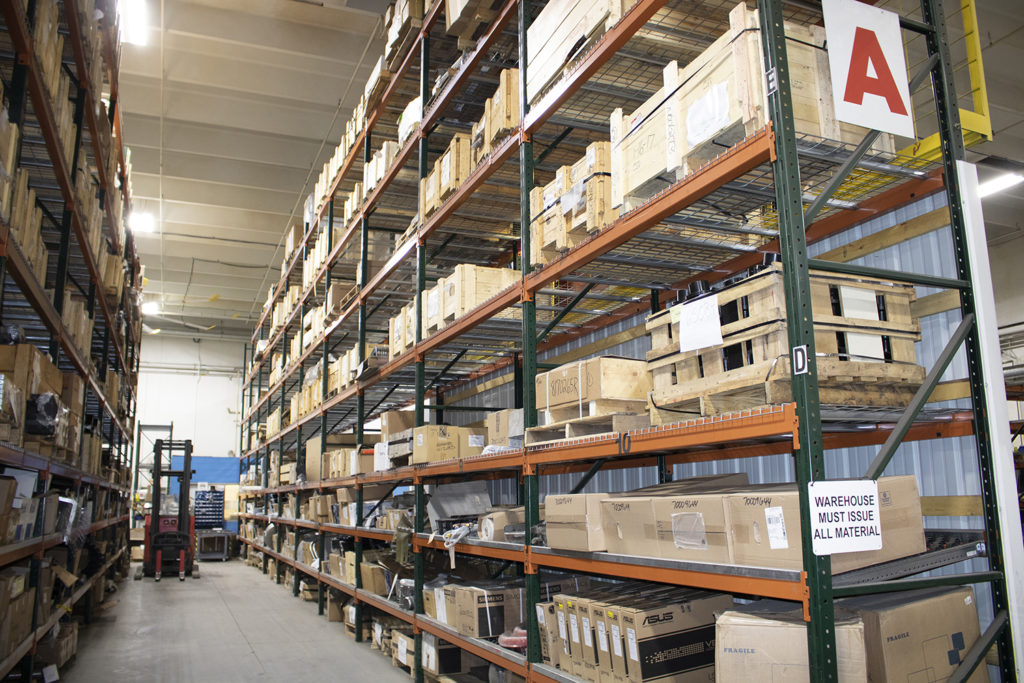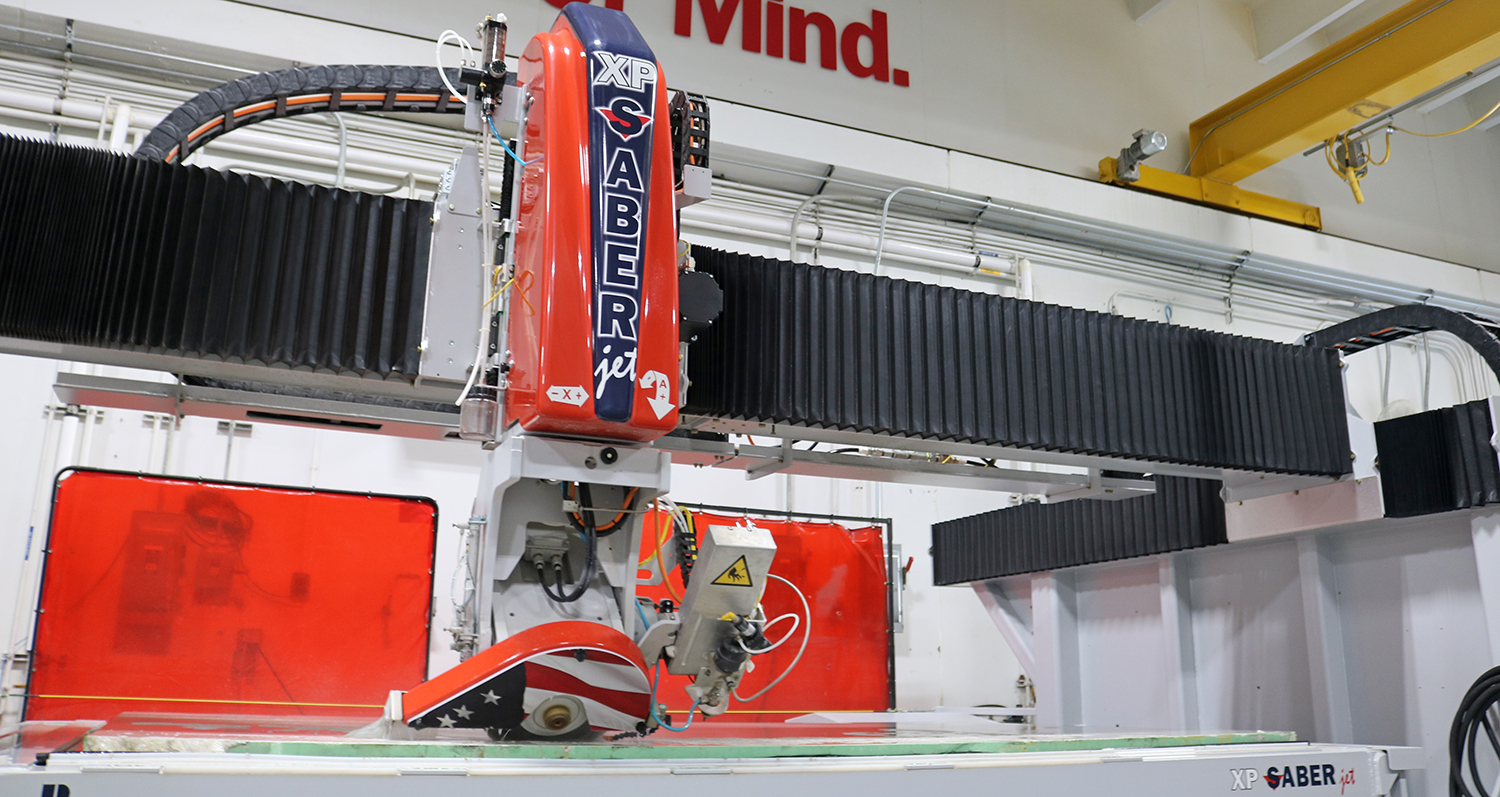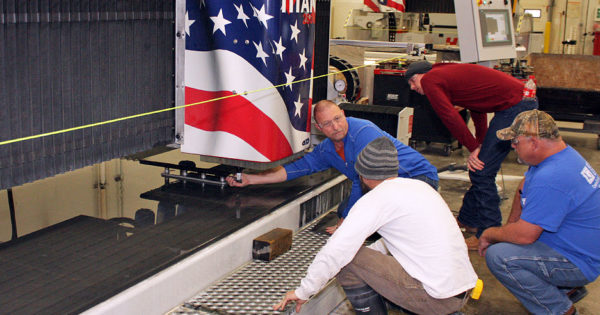Machine downtime. Even saying the words can evoke a strong reaction. Planned or unplanned, machine downtime means your machines aren’t running, you’re not completing jobs, and you’re not making money. So, it goes without saying that machine downtime has a direct correlation to your profits.
Planned downtime is one thing – you at least know it’s coming, you have some control over it, and you likely recognize its necessity and benefit. Unplanned downtime, on the other hand, can be disruptive and costly, so it just makes good business sense to take steps to eliminate unplanned downtime.
The Cost of Downtime
To begin to understand the cost of unplanned downtime, it’s important to first understand the ripple effect it has on your business. Clearly it has cost implications, but are you aware that how you react to your machines being down may be costing you in ways that aren’t so obvious? For example, consider the following:
| WATER JET | PROACTIVE Approach | REACTIVE Approach |
| Diamond Orifice Cost | $425 | $425 |
| Shipping | $25 | $134 |
| Downtime | 10 Minutes to Replace | 7 Hours Overnight Shipping + Replacement Time |
| Downtime Costs @ $1,500/hr | $250 | $10,500 |
| Total Cost | $700 | $11,509 |
The above scenario highlights the excessive costs of unplanned downtime. Certainly, replacing a part has a cost, shipping has a cost (which increases if you expedite), and there are other costs that may not be illustrated here. But there are also soft costs that should be considered (and aren’t depicted in the above scenario).
These are the costs associated with jobs that have pushed out: missed customer deadlines, overtime worked on the weekend to get caught up, and the impact all of this has on your customers’ satisfaction and your employees’ morale. There are trust implications as well as financial costs.
There are three distinct actions you can take to help minimize unplanned downtime: perform routine maintenance, develop a parts strategy, and establish an approval process for purchasing replacement parts.
Routine Maintenance
Think of your machine like you would an automobile. Like your car, your machine needs routine maintenance to ensure optimal performance. One of the best things you can do to ensure proper maintenance is to have your one or more people trained in maintaining your equipment. If you don’t have someone dedicated to maintenance in your shop, identify the employee(s) that have the skill set and incorporate the responsibilities into their job. Make sure you have someone who routinely monitors and inspects the machines to make sure they are performing as expected.
If you’re not sure what proper maintenance should look like for your machine, or don’t know how to provide appropriate training, refer to your machine manual. It details all the necessary steps you should be taking and will help you craft an appropriate maintenance plan. Other good options include online training and Park’s Advanced Maintenance Clinic™. These training programs provide clear strategies for maximizing uptime and extending the life of your machines.

Parts Strategy
Refer again to the chart. Aside from the part itself, the two largest expenses you’ll incur for parts are the cost of expedited shipping and lost productivity on the machine. You can significantly reduce (or in some cases eliminate) both expenses by having replacement parts on hand. That said, this may not be true of all parts. Below are the three basic categories of parts:
Consumables – These are parts that wear out. In a car analogy, these would be your tires and other parts that wear any time the car is in operation. You should keep 1-2 months’ worth of consumables on hand, because it’s only a matter of time before you’ll need a new one, and you should NEVER be expediting these parts.
Maintenance Parts or Supplies – These parts are replaced semi-frequently and are intended to keep your machine healthy. In a car analogy, these would be your filters and fluids. These should be replaced before they wear out, but replacement will be dependent on machine usage and wear.
Spare Parts – These are parts that will only need to be replaced if the original breaks. In a car analogy, these would include your radiator, muffler, engine components, etc. These should be replaced as needed, and it will make sense to have some of these parts on hand to reduce unplanned downtime.
To eliminate the guesswork about which parts are right to store for your machine, Park Industries® offers parts kits that include some commonly used consumables, maintenance parts, and spare parts. Park’s customer support team would be happy to help you identify which kit(s) are right for you and can assist with customization of kits as well.
Once you’ve got your parts, create an inventory and a process for restocking. It doesn’t have to be complicated, but you’ll want to make sure that replacement parts are being reordered as they’re used.
Approving Parts Purchases
This one may not be as intuitive as the other two. Establishing a process for approvals involves granting authority, which requires trust. If you require all purchases to make a pit stop at your desk for approval, you’re adding unnecessary steps to the process. Not only are you slowing things down, you’re denying one of your employees the opportunity to take on additional responsibility and grow.
If you’re already doing this, great! If not, maybe start small and hand off the things that you would automatically approve. As you gain comfort with your new process, you can hand off more.
Establishing spending limits is another way to delegate without giving up complete control. Think of it this way, time is money and all extra steps in the process take time. Take a hard look at what you can delegate. It will empower your employees and give you more time for other items begging for your time and attention.
A Three-Legged Stool
Each of the above are great strategies for addressing unplanned downtime, but the real power is in all three of them done together; it’s like the proverbial three-legged stool. Take the time now, to assess what you might need in the future. Park Industries® customer support team is here to help if you have questions. Together, we’ll help you find the solutions that will work best for you and your shop.


